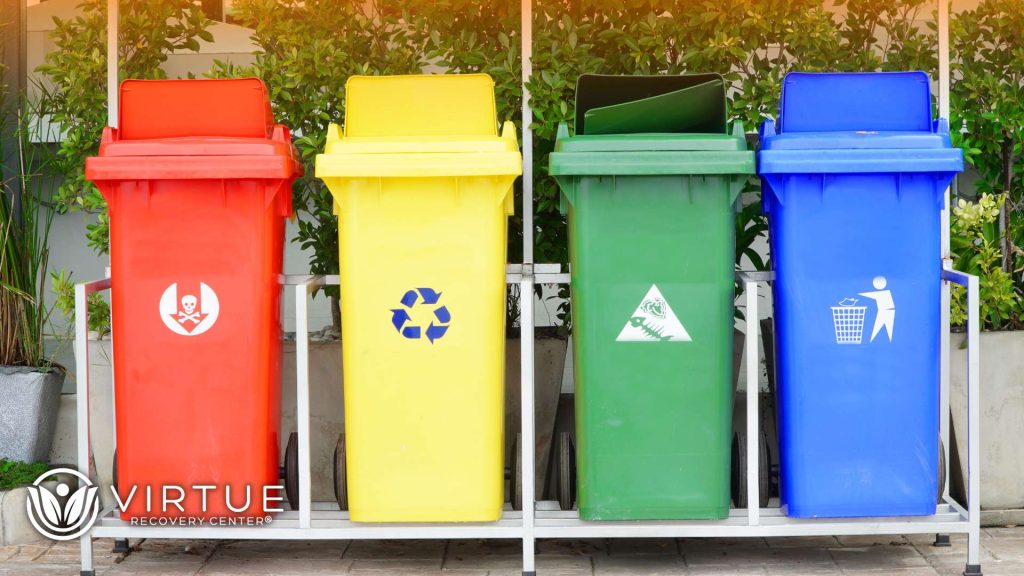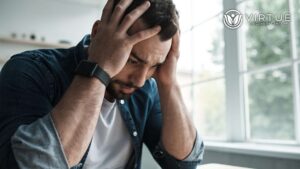Key Takeaways
- Proper medication disposal prevents accidental misuse and environmental harm.
- The FDA flush list allows certain medicines to be disposed of in sinks or toilets.
- Drug take-back programs are the safest way to dispose of most medications.
- Mixing medicine with coffee grounds or cat litter can make home disposal safer.
- Local pharmacies and law enforcement agencies may offer on-site medicine disposal options.
Introduction
Most households have unused or expired medicine sitting in cabinets or drawers. Many people are unsure of how to dispose of these medications properly. Some worry about environmental harm, while others fear the risk of accidental misuse by children or pets.
Improper disposal can lead to prescription drug misuse, contamination of water supplies, and legal issues. Understanding the best disposal practices can help prevent these risks.
This guide will explain safe medication disposal methods, including take-back programs, FDA recommendations, and home disposal techniques.
Why Proper Drug Disposal Matters
1. Prevents Accidental Poisoning and Misuse
Leaving unused medicines in your home can be dangerous. Children, pets, or people struggling with addiction may accidentally take prescription drugs, leading to serious health risks. Disposing of medications properly reduces the chance of accidental overdose or misuse.
2. Protects the Environment
Throwing medicines in the trash or flushing them down the toilet can harm the environment. Some drugs can pollute water supplies and affect wildlife and ecosystems. The Environmental Protection Agency (EPA) warns against flushing certain medications unless they are on the FDA flush list.
3. Reduces the Risk of Prescription Drug Abuse
Many people who develop prescription drug addictions start by misusing medications found at home. The National Prescription Drug Take-Back Program helps remove expired drugs and unused prescriptions from households, preventing abuse.
How to Dispose of Unused Medicine Responsibly
1. Use a Drug Take-Back Program
The best way to dispose of medicine is through an authorized drug take-back program. These programs allow people to drop off expired or unused prescription and over-the-counter medicines at designated locations.
You can find a take-back location near you by:
- Checking with your local pharmacy or hospital.
- Visiting the Drug Enforcement Administration (DEA) website for collection sites.
- Contacting local law enforcement agencies that offer disposal programs.
The DEA sponsors National Prescription Drug Take-Back events twice a year, offering a safe way to dispose of unused medications responsibly.
2. Check the FDA Flush List for Certain Medicines
Some medications should be flushed down the toilet or sink if a take-back program is unavailable. The FDA flush list includes drugs that can be life-threatening if taken by someone they were not prescribed to.
Common flushable medications include:
- Certain pain medications (opioids).
- Some anxiety and ADHD medications.
- Drugs with high overdose potential.
You can check the FDA’s official flush list to see if your medicine qualifies for safe flushing. If your medication is not listed, do not flush it.
3. Home Disposal: Safe Steps for Throwing Away Medications
If a take-back option is not available, some medicines can be thrown away safely at home. To ensure safety:
Mix with Undesirable Substances
- Do NOT crush pills or tablets.
- Remove medications from their original packaging.
- Mix the medicine with coffee grounds, cat litter, or dirt to make it less appealing.
- Place the mixture in a sealed plastic bag before throwing it in the trash.
Remove Personal Information
- Before throwing away medicine packaging, remove or scratch out your personal details.
- This prevents identity theft and misuse of prescription information.
4. Ask Your Pharmacist or Doctor for Advice
If you’re unsure about how to dispose of a particular prescription or over-the-counter medication, your pharmacist can help. Many pharmacies offer:
- On-site disposal options for certain medications.
- Medication disposal kiosks where you can safely drop off expired drugs.
- Guidance on local take-back programs or alternative disposal methods.
What NOT to Do When Disposing of Medicine
1. Do Not Flush Unless Advised
Flushing most medications can contaminate drinking water and harm wildlife. Only flush medicines listed on the FDA flush list.
2. Do Not Share Medications
Even if a medication seems harmless, never give unused prescriptions to someone else. Medications should only be used by the person they were prescribed for.
3. Do Not Leave Medications in the Open
Expired medications should be disposed of promptly. Keeping them accessible increases the risk of accidental ingestion or misuse.
Conclusion: Safely Dispose of Unused Medicine Today
Proper medication disposal helps prevent misuse, protect the environment, and keep families safe. The best disposal option is to use a drug take-back program. If one is not available, check the FDA flush list or use safe home disposal methods.
If you or a loved one is struggling with prescription drug misuse, professional treatment can help. Virtue Recovery Killeen provides comprehensive addiction treatment programs for those affected by substance use disorders. Our experienced team is dedicated to providing personalized care that addresses the unique needs of each individual. By incorporating evidence-based practices, including the goal of cognitive behavioral therapy, we empower clients to develop coping skills and healthier thought patterns. At Virtue Recovery Killeen, we believe in fostering a supportive environment where healing and recovery can truly begin.
Call 254-434-6764 today to speak with a caring professional and get the help you deserve.
FAQs About How to Dispose of Medicines at Home
How do I safely dispose of unused medicines?
The safest method is to use a drug take-back program. If that’s not available, check the FDA flush list or mix the medicine with coffee grounds or cat litter before throwing it away.
Can I flush old medications down the toilet?
Only medications listed on the FDA flush list should be flushed. Most other medicines should be taken to disposal locations or mixed with an undesirable substance before being thrown away.
Where can I find a drug take-back location near me?
Check with your local pharmacy, hospital, or law enforcement agency. You can also visit the DEA’s website to find registered disposal sites.
Is it safe to throw prescription drugs in the trash?
If no take-back option is available, mix the medications with coffee grounds, dirt, or cat litter, seal them in a plastic bag, and dispose of them in the trash. Always remove personal information from the packaging.
What should I do if someone I know is misusing prescription drugs?
If someone you know is struggling with prescription drug misuse, encourage them to seek professional treatment. Call Virtue Recovery Killeen at 254-434-6764 for confidential support and treatment options.
Resources
https://www.fda.gov/consumers/consumer-updates/where-and-how-dispose-unused-medicines
https://www.dea.gov/sites/default/files/2018-10/Proper%20Disposal%20Flier%20%28October%202018%29.pdf
https://www.epa.gov/sites/default/files/2015-06/documents/how-to-dispose-medicines.pdf
- About the Author
- Latest Posts
Gigi Price holds licenses as a Master Social Worker and Clinical Drug Counselor. She completed her master’s degree in Social Work at Texas State University. Over the last decade, Gigi has been dedicated to utilizing evidence-based practices to enhance patient care and treatment planning, resulting in positive, long-term outcomes for patients and their families. Her passion lies in creating a treatment environment where professionals collaborate to bring about positive change and provide a safe, trustworthy therapeutic experience. Patients can be confident in receiving top-quality care under her leadership.
In her role as the Clinical Director of Virtue Recovery Houston, Gigi conducted research to identify the most effective approaches for treating patients with acute mental health diagnoses, PTSD, and Substance Use Disorder. She then assembled a team of skilled clinicians who could offer various therapeutic modalities, such as Cognitive Behavioral Therapy (CBT), Dialectical Behavioral Therapy
(DBT), Acceptance and Commitment Therapy (ACT), Somatic Exposure, Eye Movement Desensitization and Reprocessing (EMDR), and Cognitive Processing Therapy (CPT). Gigi takes pride in overseeing the development and implementation of Virtue Houston’s Treatment Program, which includes two specialized therapeutic curricula tailored to the unique needs of individuals struggling with mental health issues, addiction, and PTSD.









